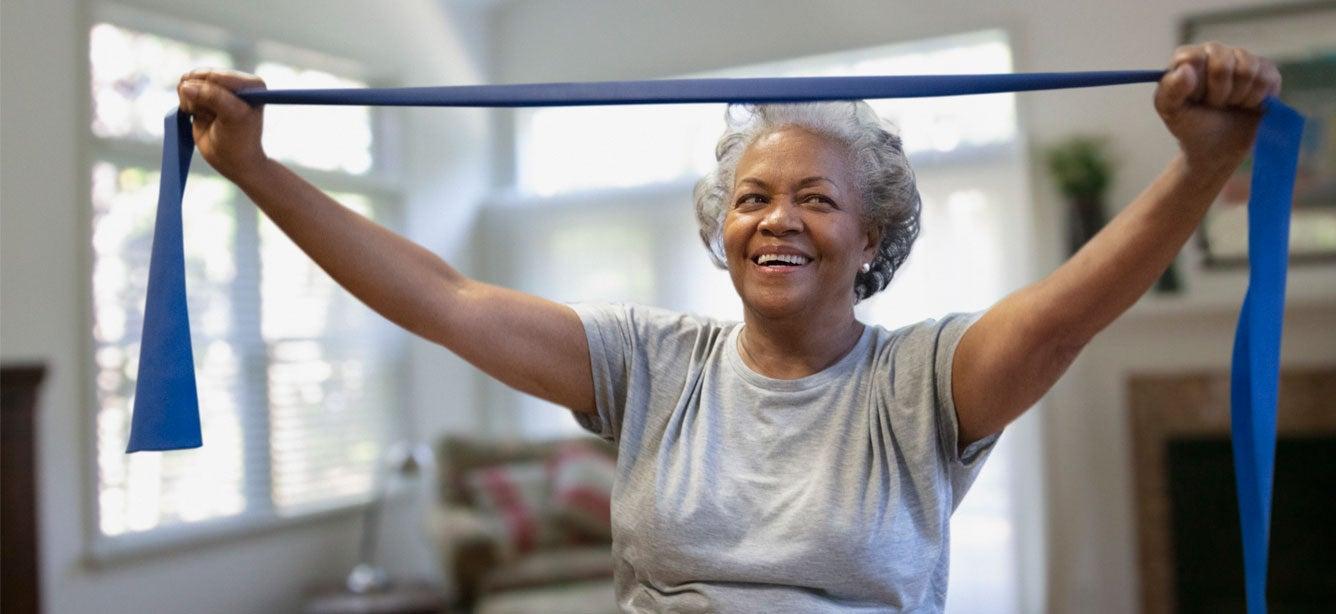Falls Prevention Program Participants vs. Completers: How Are They Tracked?
10 min read

The Healthy Aging Programs Integrated Database, or HAPID®, is built on the Salesforce platform, and tracks data from host organizations, implementation sites, and participants for over 50 evidence-based programs in the areas of chronic disease, falls prevention, mental health, physical activity, and more. Most are small group (10-15 individuals), workshop-based programs offered in locations such as senior centers, area agencies on aging, churches, libraries, hospitals, other community-based settings, and even online. Some programs are one-on-one (e.g., HomeMeds, Otago, PEARLS) or self-directed (e.g., Tool Kit for Active Living with Chronic Conditions).
For ACL grantees, there are specific requirements for tracking "participants" and "completers" in each of these programs.
Definitions
- Participant: An individual who attends at least one session of an evidence-based program.
- Completer: A participant in a group program who completes the recommended intervention dose, often set by the program developer. When the program developer has not issued a specific recommended dosage (or the minimum number of required sessions), ACL and NCOA use 2/3 of the total possible sessions as the default definition of a completer. For example: A participant is considered a completer if they attend 4 or more sessions out of 6 in a six-session program, excluding any session zero classes. Database users are able to track program completers for quality assurance purposes. Reporting number of completers is not required for the ACL Falls Prevention grant program.
- Falls Prevention Program: For the purpose of the ACL Falls Prevention grant, an umbrella term that refers to community-based education programs that have been proven to reduce risk of falls, fear of falling, and fall related injuries among older adults.
- Session Zero: Session Zero is an optional information session offered prior to the first official program class. Generally, session zero includes an overview of the program and expectations for participation. Additionally, administrative paperwork is often collected at this time. A session zero does not count toward participant or completer numbers.
While program developers may have their recommended number of sessions, or dosage, that participants need to meet to be considered a ‘completer,’ it is ultimately up to ACL to determine whether ‘participants enrolled’ or ‘completers’ will count toward the grantee’s goals. When grantees are offering a number of programs, they may find that for some programs, participants are counted, while for other programs, only completers will count toward their total target goals. The Healthy Aging Programs Integrated Database allows grantees to document both data points—enrolled participants and completers.
Grant requirements & data entry
ACL Falls Prevention Grantees are expected to set goals to reach a specific number of participants. Both participants and completers (not required for grant reporting) are tracked for the following programs in HAPID. Completion is based on the definition above.
| Program |
Total Number of Sessions/ Number of Sessions Required for Completion |
| A Matter of Balance (in-person) | 8/5 |
| A Matter of Balance (Online) | 9/5 |
| Bingocize | 20/16 |
| CAPABLE | Varies depending on participant needs |
| EnhanceFitness | Ongoing; 22 sessions in the first 4 months to count as completer |
| FallsTalk | 1/1 |
| FallScape | 5/5 |
| Fit & Strong! | 24/18 |
| Healthy Steps for Older Adults | 2/2 |
| Healthy Steps in Motion | 8/5 |
| Moving for Better Balance (YMCA) | 24/15 |
| The Otago Exercise Program | 8/5 |
| Stay Active and Independent for Life (SAIL) | 24/18 |
| Stepping On | 7/5 |
| Tai Chi for Arthritis | 16/11 |
| Tai Chi Prime | 12/11 |
| Tai Ji Quan: Moving for Better Balance | 48/36 |


